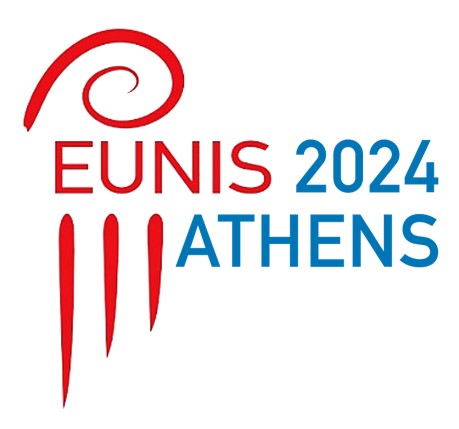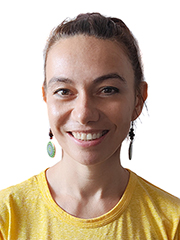This session consists of a sponsor lightning presentation followed by two presentations.
Featured Speakers
Andrew Stalker, Overleaf:
Simplifying academic writing and collaboration
Download the presentation
Anna Pacholak, Space Research Centre of the Polish Academy of Sciences (CBK PAN):
AI and machine learning: from Open Data to algorithms #96
Open research data can be used by anyone to analyze and reuse. A major purpose of the drive for open data is to allow everyone to look at the reproducibility of results, and to allow data from many sources to be integrated to produce new knowledge. A specific kind of open data are the images of Earth, delivered by satellites. An open access and free of charge data are available via the Copernicus Data Space Ecosystem funded by the EU. The aim of the service is to gather tools and resources to unlock the full potential of this Earth Observation (EO) data. Multispectral and SAR (radar) images provide reliable information about the Earth’s surface due to their high spectral and spatial resolution. They often serve for researching complex issues such as study of Earth surface monitoring including climate change, security or crisis management. This interdisciplinary approach requires the collaboration of IT professionals with different specialists and a comprehensive understanding of the problem in different scientific fields: physical, geographical, biological, social, engineering, etc.
Moreover, effective processing of such a large amount of data requires dedicated analysis methods. It demands not only know-how but also some automatic processing to make use of big data and to convert them into services useful in many disciplines. In order to that, the adoption of machine learning, deep learning and AI advancements within this process is a natural pathway to be explored.
The presentation will focus on experiences of Earth Observation Department in Space Research Centre of the Polish Academy of Sciences (CBK PAN) along this way. Selected case studies referring to machine learning and human expertise will be presented on a general level of complexity, with the emphasis put on their interoperability and benchmarking potential for other research teams.
Download the presentation
Laurents Sesink, SURF:
Approaches to scaling up reproducibility #90
In the contemporary landscape of academia, ensuring the reproducibility of research findings is paramount for maintaining scientific integrity and advancing discovery. This presentation at EUNIS aims to dive into the concept of reproducibility in the context of open science. It will focus on the results of the report ‘Approaches to scaling up reproducibility in research organizations’ and how to apply it, written by Dr Michelle Barker and Professor Neil Chue Hong, underpinned by the work done by open science experts within the Knowledge Exchange.
Research and education institutions share the common struggle of implementing effective strategies to scale up reproducibility across various disciplines. It is agreed that the wide range of technological solutions needed for reproducible publication practices are currently available in today’s research landscape. However, the key technical gaps are interoperability between available tools and workflows and the lack of technological solutions for reproducibility coverage in training curricula.
This presentation aims to help institutions identify who is currently involved in reproducibility processes and who should be, how dialogue might be initiated or enhanced, and what the enablers for success could be. More specifically, we will present the three elements of the report’s framework: 1) the three organizational levels (pockets of excellence, partially coordinated, committed), 2) the seven enablers of scaling up reproducibility, and 3) the assessment worksheet.
Additionally, the presentation will include Everett Rogers’ diffusion of innovation model and Brian Nosek’s strategy for culture change to better understand the current status of reproducibility. We aim to provide insight into which stage of innovation reproducibility can be seen, in comparison to other pillars of open science. Lastly, we share the recommended initiatives as well as key communities that are needed to catalyze the transition to making reproducibility practices more commonplace.
Download the presentation



